We were lucky to catch up with Jason Reeves recently and have shared our conversation below.
Hi Jason, thanks for joining us today. When did you first know you wanted to pursue a creative/artistic path professionally?
As far back as I remember I was always interested in being an artist. I’ve bee drawing since I was three yrs. old and all through my childhood the kitchen table was my studio.
An old friend Mark, an older kid in the neighborhood, introduced me to my first comics. I remember being knocked off my feet by X-Men Classic, the reprints of the writer Chris Claremont’s stories. It’s not that I hadn’t been into superheroes my whole life, I loved Superman cartoons and Star Wars, but those were fleeting. Once Saturday morning was over or you left the theater back in the day, who knows when you’d be able to see those things again. With comics, you had all the stories and images forever, the idea of collecting them and reading them over and over really resonated with me. It still does.
After I flipped through Mark’s old comics, every spare minute I had was spent trying to make my own comics.
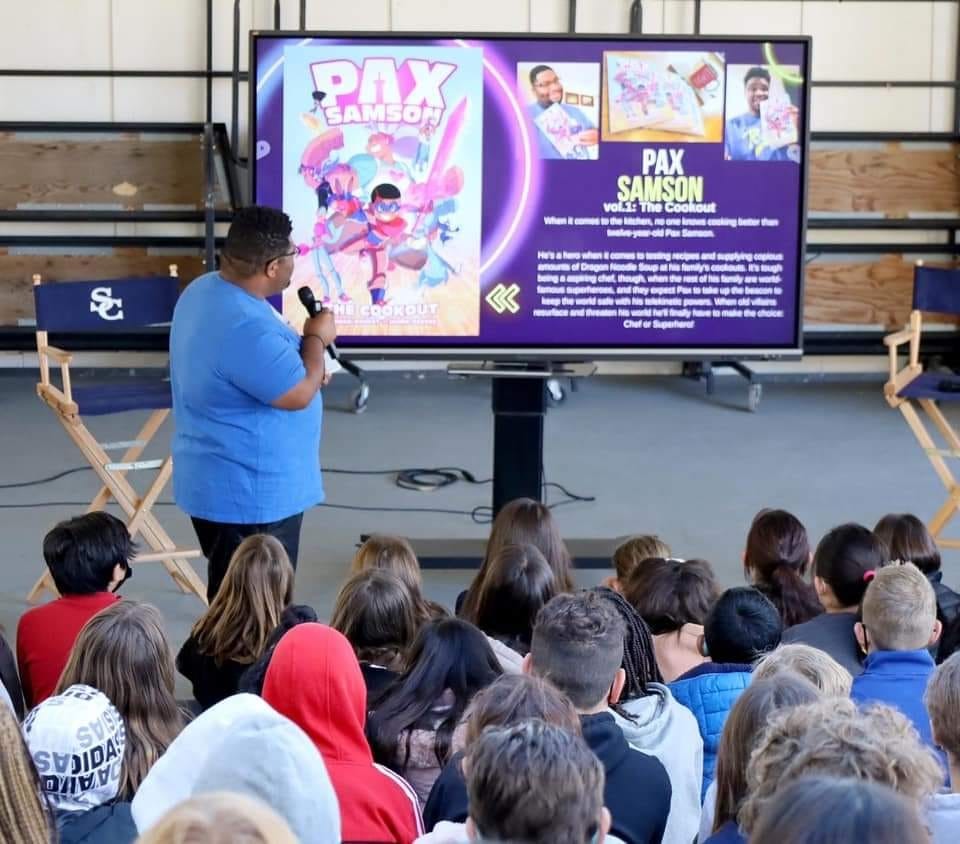
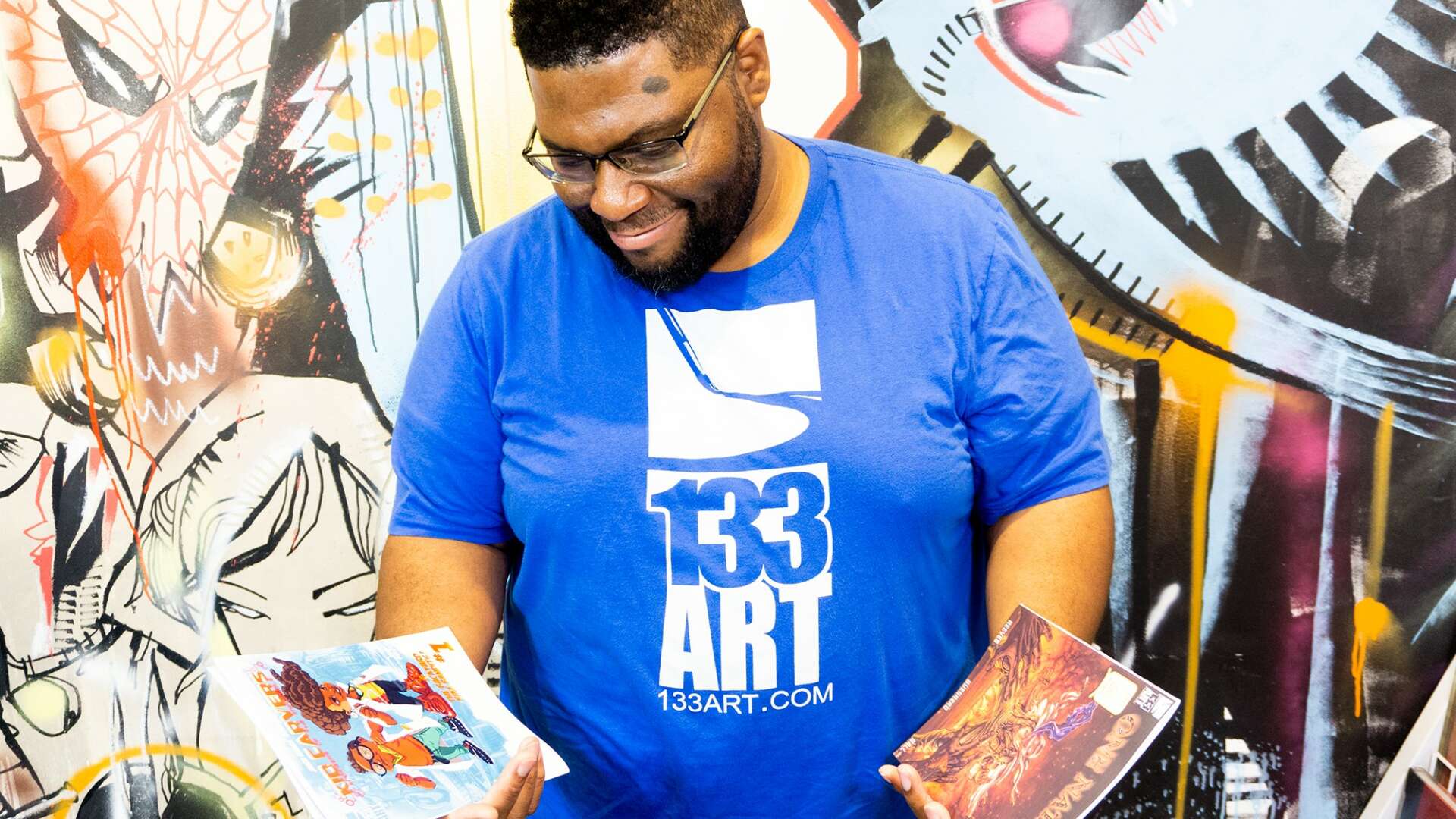
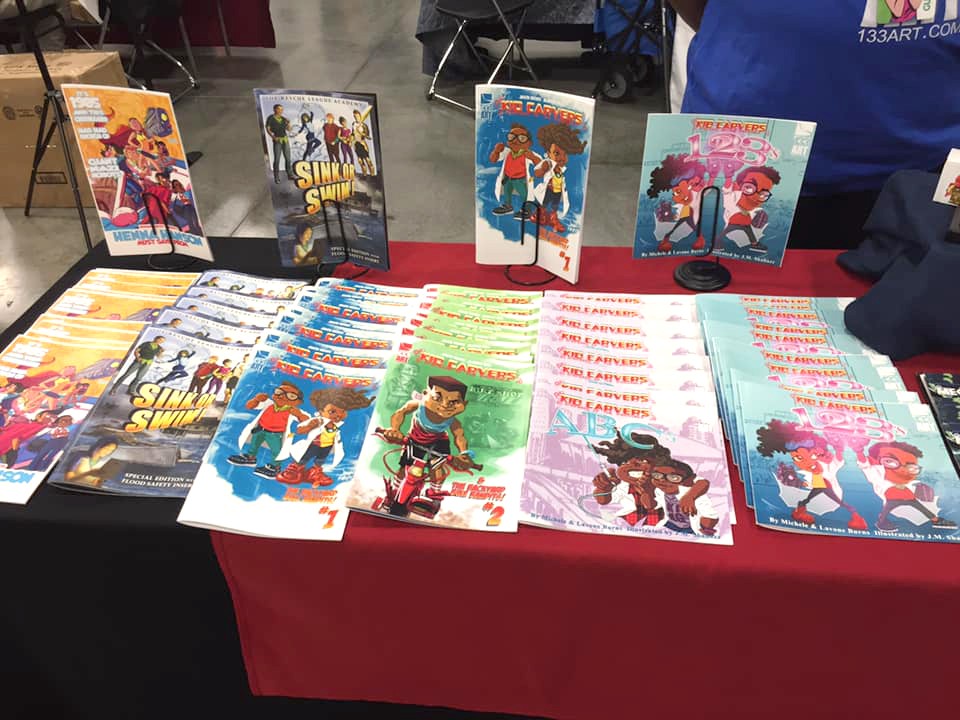
Awesome – so before we get into the rest of our questions, can you briefly introduce yourself to our readers.
I grew up in New Orleans, Louisiana and like I said, I’ve been drawing and been inspired by art since I was a toddler. In my last two years of high school, I attended the New Orleans Center for Creative Arts (NOCCA) but I’m mostly self-taught. After graduation, I knew I wanted to pursue a career comics.
Breaking into the comic industry is a tough nut to crack, filled with seen and unseen challenges. The lack of clear avenues into the industry and the financial barriers made it hard to pursue my passion. For years, I settled for menial jobs, but I never stopped creating and drawing.
Also, as I grew older, my frustration with the lack of diversity in comics began to build. I continued to collect comics and attend conventions; I couldn’t help but notice that there were very few Black characters or creators. This lack of representation became a pressing issue for me. I felt that there was a need for more Black heroes who related to the world in a way that wasn’t being portrayed in the comics I consumed. I didn’t want to wait for the industry to change and I was starting to think I needed to take matters into my own hands and create what was lacking.
It was just like when I was a kid, drawing at my mom’s kitchen table. The difference now was that I was determined to create stories featuring my own characters, Black heroes who could resonate with audiences in a way that was missing from the mainstream comics industry. That’s how 133art Publishing was born.
133art is not just a publisher, for me it’s a mission. We strive to create and distribute comics that speak to a diverse audience, who have been traditionally underrepresented in the industry. We want to make sure that they can see themselves in the heroes we create.
Starting my own comics publishing company wasn’t easy, but it allowed me to create stories that matter, and to give voice to characters that I always wished existed. I am proud to be a part of a growing movement of Black creators who are breaking down barriers and changing the face of comics.
Can you share a story from your journey that illustrates your resilience?
In 2005, Hurricane Katrina devastated New Orleans and I lost everything. Just a week prior, I attended my first San Diego Comic-Con, which proved to be (thankfully) a life-changing experience.
At the convention, I met Lee Moyer, an illustrator and one of the best in the business. Lee and I hit it off, and when he heard about Hurricane Katrina, he immediately reached out to me. Despite barely knowing me, he invited me to stay with him and his wife in Portland, Oregon, where he set up a workspace for me in his office and taught me everything he knew about illustration.
I watched him work everyday, illustrating book covers, theater posters, card games, he negotiated contracts, met with clients, we went to live drawing classes, he introduced me to other illustrators (a lot of comics guys too), and yes he kicked my butt until I learned Photoshop. Those seven months in Portland were like an illustrator boot camp for me, and I left feeling like I had just graduated from art college.
Determined to make a fresh start, I returned to New Orleans and began working on several projects simultaneously: I was able to go back to my old job, I started a vending machine business, and start building 133art, in its first incarnation; a freelance illustration business. With the help of the connections I made in Portland, I was able to start freelancing as an illustrator, and a year later, I had saved up enough money to move to Los Angeles. In California, 133art began to grow and thrive.
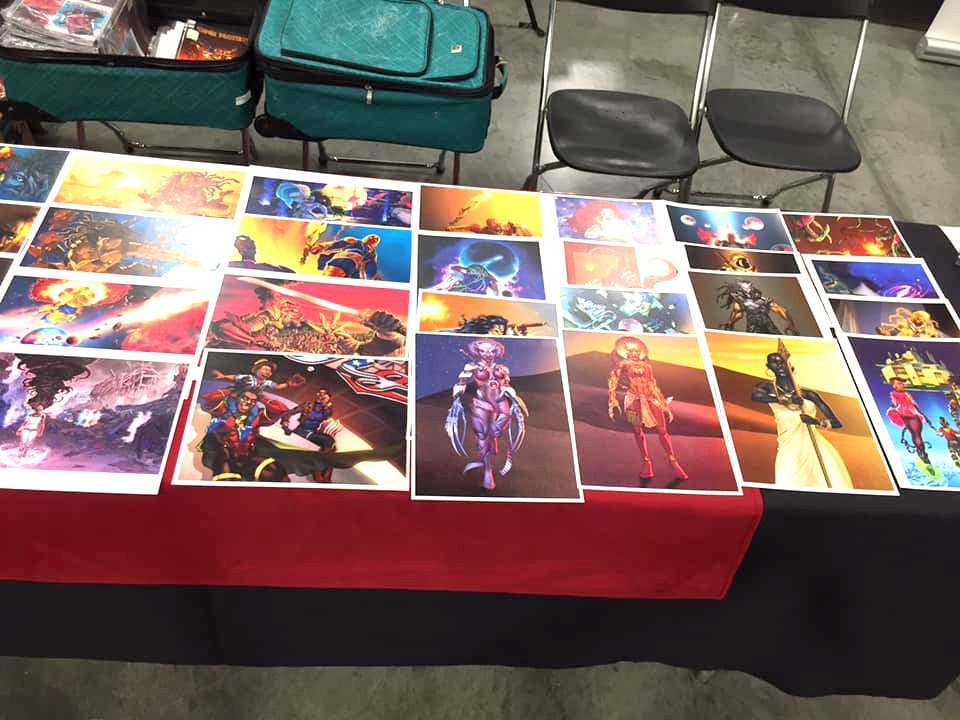
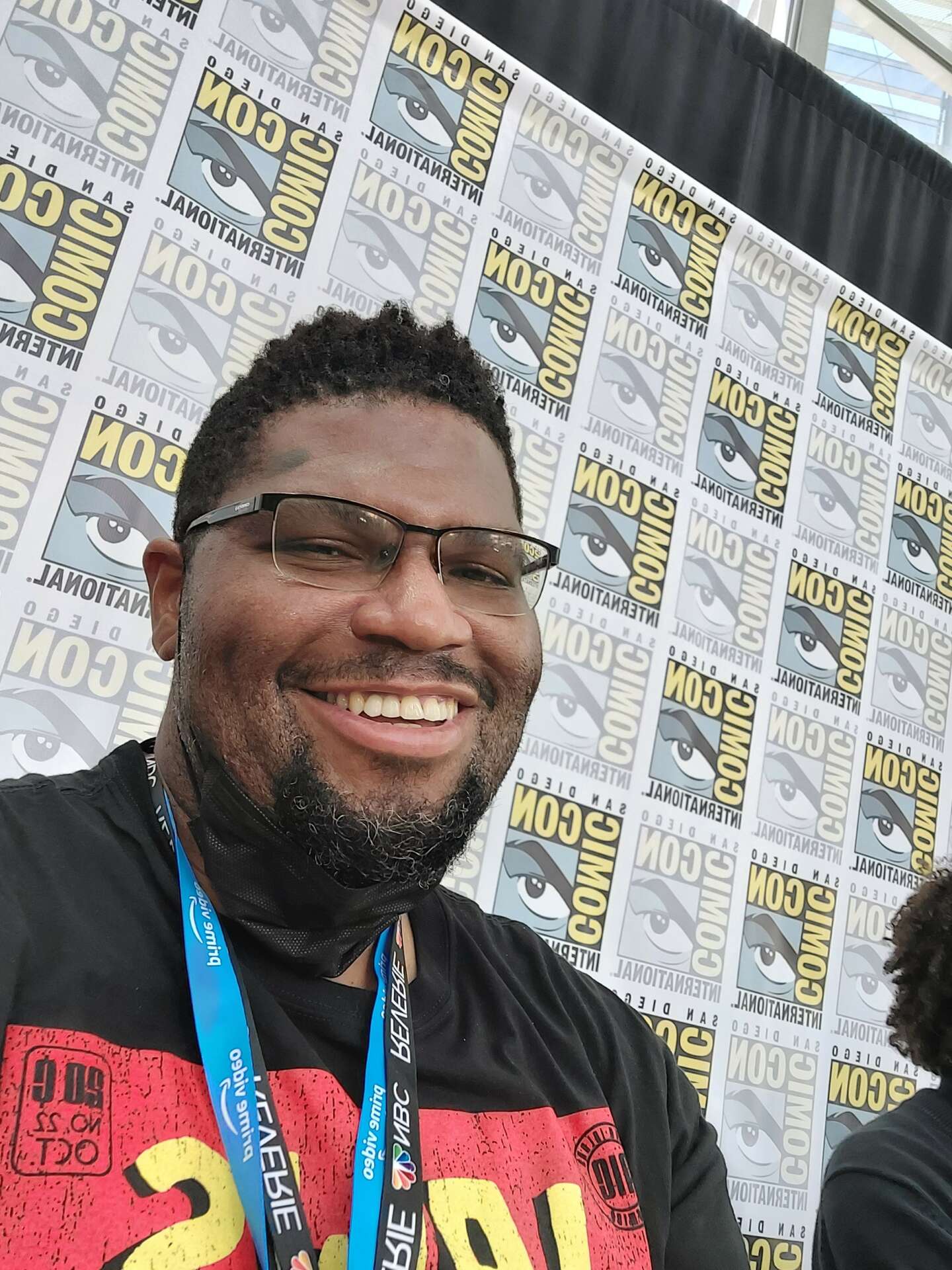
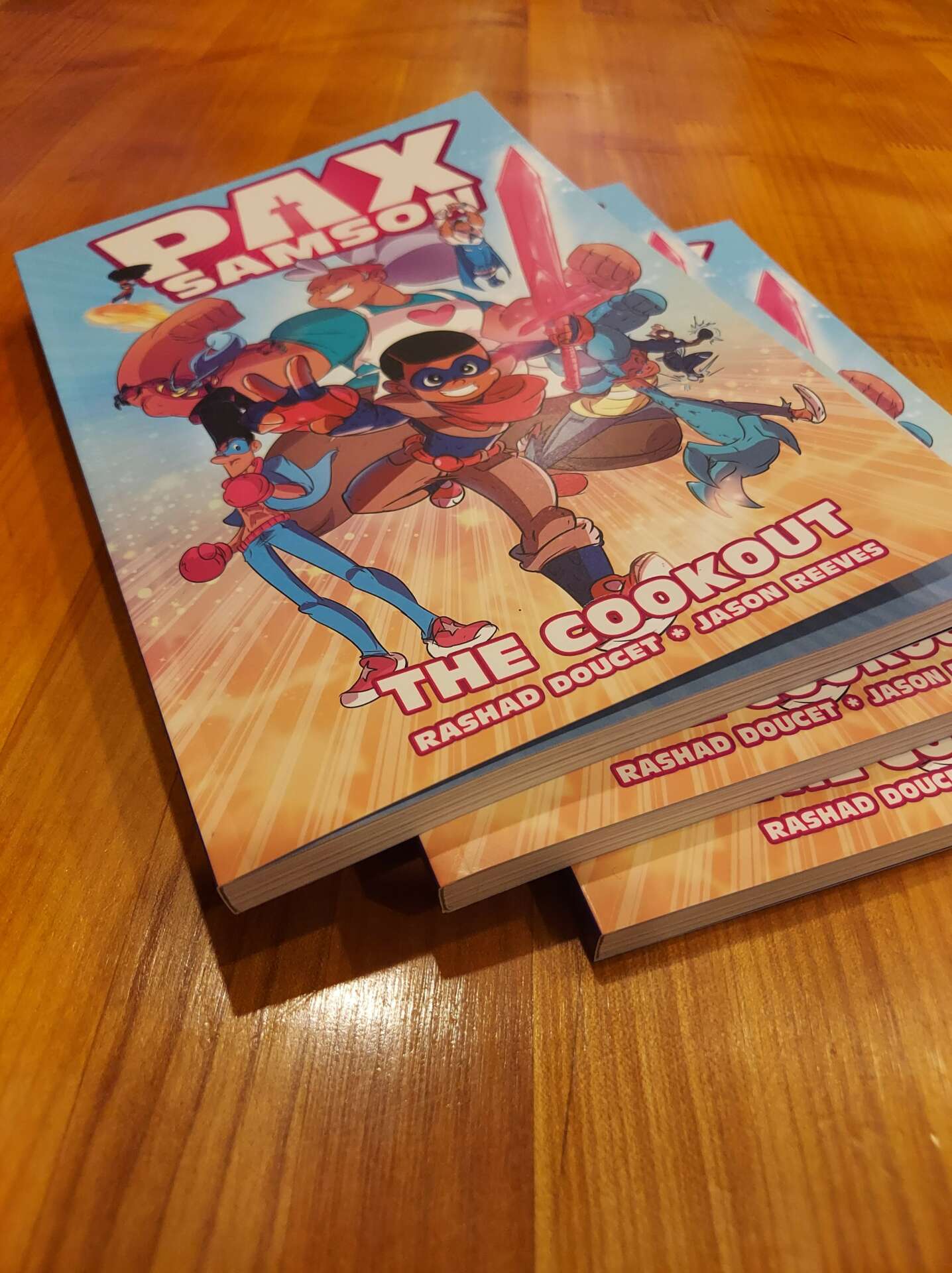
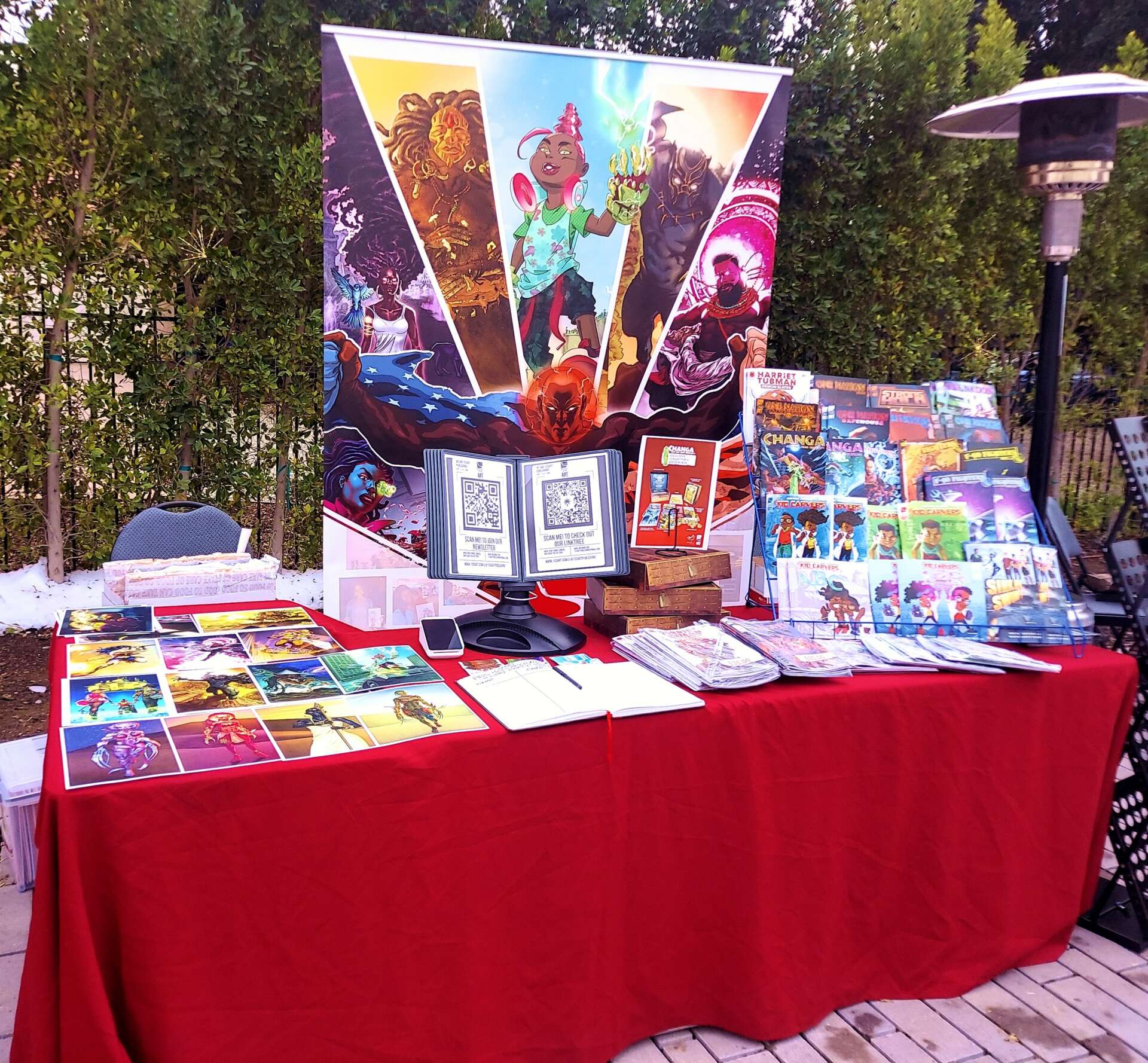
Can you tell us about a time you’ve had to pivot?
Building a business from scratch is no easy feat. As a self-taught artist, I’ve had to navigate the worlds of sales, marketing, and printing to establish my comic book brand, 133art. Losing everything in Hurricane Katrina only added to the challenge.
Collecting clients for freelance or printing jobs doesn’t happen overnight. It takes a continuous effort to put yourself and your work out there, network, and pivot when things aren’t working in your favor. One of the biggest struggles in the indie comics industry, and for 133art specifically, is finding your audience. When I started out, I knew I wanted to create content with Black leads and heroes, but I had to figure out who would be interested in buying that content and where to find them.
Social media has been a key marketing tool for me, with Facebook, Twitter, Instagram, Peep Game Comics, and my website 133art.com being my go-to places. But in-person events like Black Indie Comic Conventions have been even more effective at drawing in potential customers. MECCA Con in Detroit, Black Comix Day in San Diego, Black Comics Arts Festival in San Francisco, Sol-Con in Ohio, the Black Comics Fest and the Black Comics Collective in New York are just a few of the events where I’ve been able to showcase my work and connect with fans.
But there’s still more work to be done. Wider distribution into bookstores and comic shops is the next step, and it will take time and effort to crack that nut. Building something up from scratch takes perseverance, patience, and a willingness to take things one step at a time. And as I continue to learn and grow, I’m excited to see where the next steps will take me and my brand.
Contact Info:
- Website: https://133art.com/
- Instagram: https://www.instagram.com/133art
- Facebook: https://www.facebook.com/133artPublishing
- Linkedin: https://www.linkedin.com/in/jason-reeves-7aabb39/
- Twitter: https://twitter.com/133art
- Youtube: https://www.youtube.com/channel/UCFQkozE0off_eSy02fDHdCA


